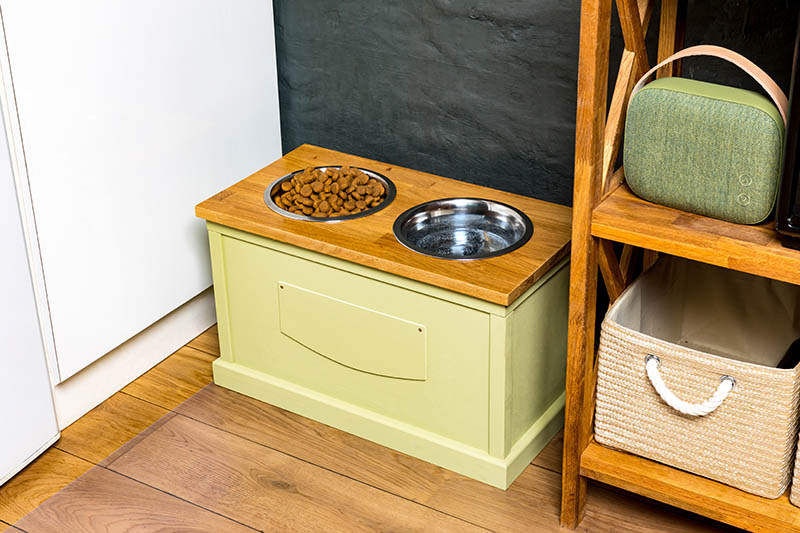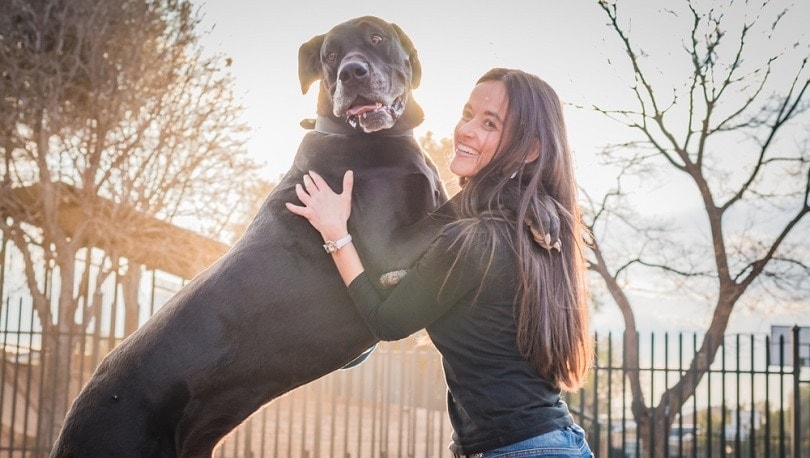Are Cane Corsos Good Family Dogs? Temperament & Safety Tips

Updated on
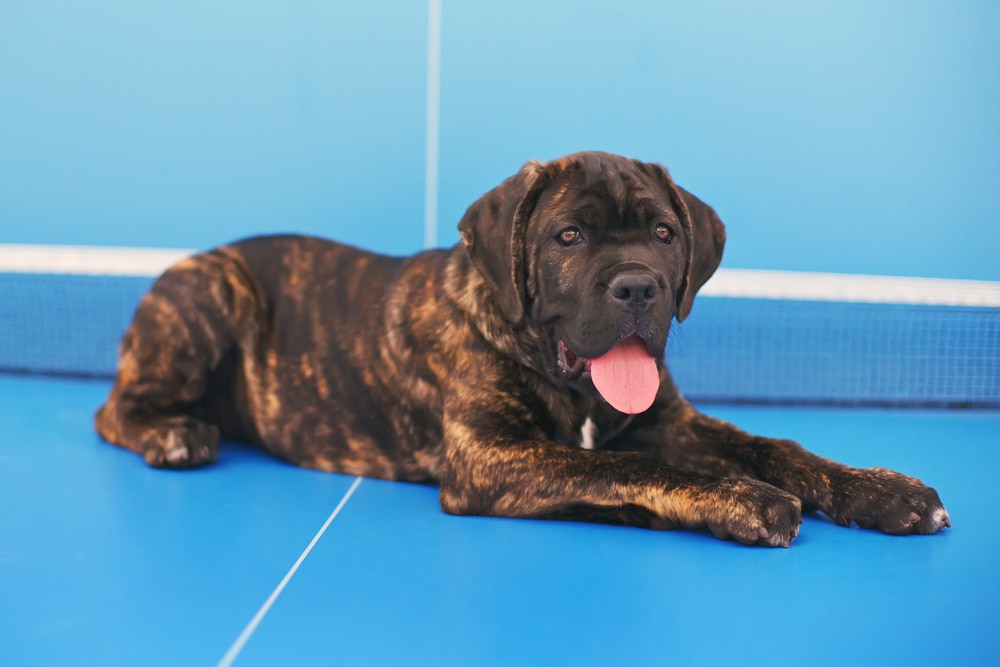
An old Italian breed, the Cane Corso is a gentle giant who always needs a job to do. Originally developed to guard properties and hunt large game, this powerful and protective dog is intimidating at first glance. However, once you get to know him, the Cane Corso is a loyal and loving breed that is devoted to his human pack. These traits make the Cane Corso a great family dog.
However, before you run out and scoop up a Cane Corso puppy, there are some things that you should take into consideration. Because of the large size of this breed, any Cane Corso owner needs to have the proper education and understanding of how to train and handle their dog effectively.
Here’s everything you need to know before adding a Cane Corso to your family.
Are Cane Corsos Good Family Dogs?
Cane Corsos are friendly, protective dogs that love to be please people. But this doesn’t mean that they’re a perfect fit for every family.
Due to their massive size, Cane Corsos are not recommended for families with small children. This dog may accidentally injure a toddler while playing.
If you do decide to get a Cane Corso, it’s critical that you keep a close eye on him when he’s playing or interacting with your child. You should also teach your child how to properly act while around the dog.
- Learning to say basic commands such as “sit” and “no”
- No tugging on the dog’s ears or tail
- Never taking toys or food from the dog
- Not tackling or wrestling your Cane Corso
While a Cane Corso might adore your children, you should still keep a vigilant eye when he plays with them.
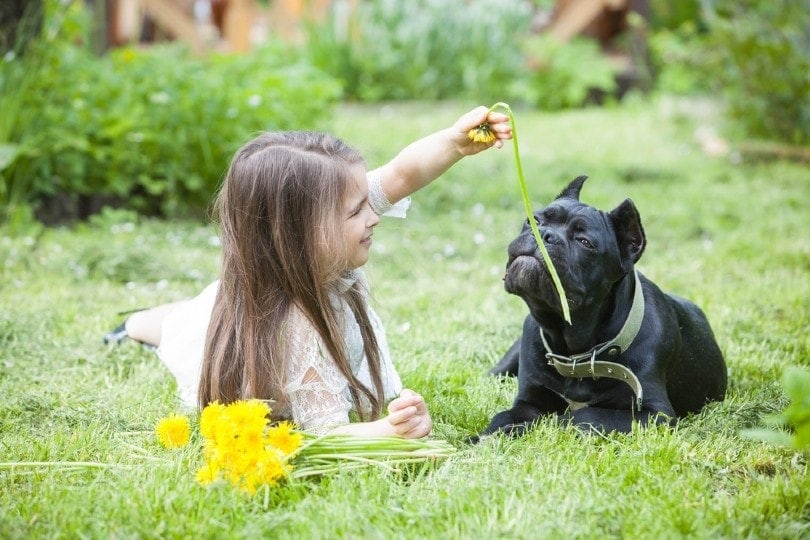
Will Cane Corsos Get Along With Other Pets?
If you live in a multi-pet household, you may be wondering if it’s a good idea to introduce a Cane Corso to your other four-legged family members. While this breed is generally good with other dogs, they do not do well with cats.
This is because the Cane Corso has a high prey drive. He’ll want to chase your kitty every time they cross paths. This will cause severe stress to your cat. On top of that, your cat could become easily injured if the Cane Corso was to catch her.
If you bring a Cane Corso home, you need to start socializing him with the other dogs in the house from the get-go. Be mindful that this breed may show aggression toward smaller dogs or dogs of the same sex.
Are Cane Corsos Friendly?
Cane Corsos are exceptionally friendly with their own family. However, this breed may be wary of strangers. Since he was originally developed to be a guard dog, your Cane Corso will try to protect you at all costs. This could pose a threat to your guests.
As with other dogs, you need to start socializing your Cane Corso with people as soon as you bring him home. Take him for long walks around the neighborhood and introduce him to as many new faces as possible.
Since he’s so big, using a heavy-duty leash designed for bigger breeds is essential. Invest in a strong harness that prevents your Cane Corso from pulling. It’s also a good idea to enroll your Cane Corso in obedience classes when he’s still a puppy. Teaching your dog basic commands will help promote safety.
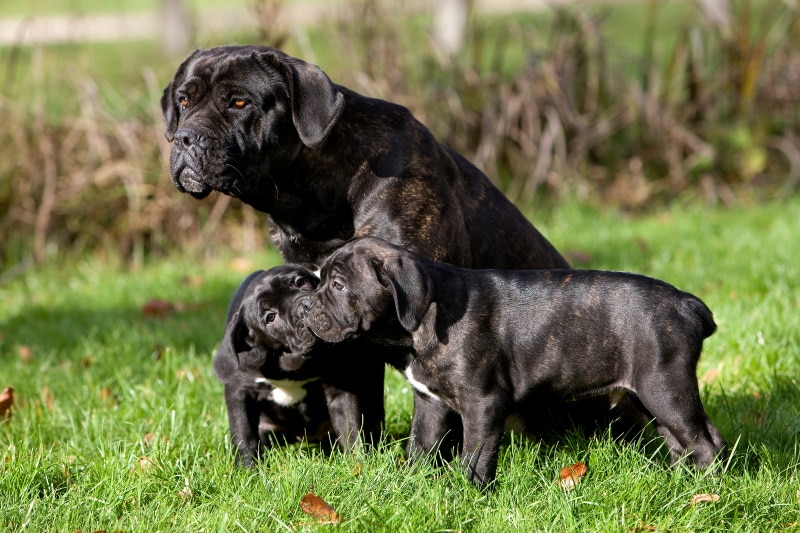
Does a Cane Corso Need a Lot of Exercise?
Cane Corsos are best suited for active families. This dog needs at least 30 minutes of vigorous exercise every day to keep him healthy and happy. Without the proper mental and physical stimulation, this breed can easily develop bad habits such as excessive barking or chewing.
Aim to walk your dog a couple of times per day. If you have a large, fenced-in yard, let him run and romp for a couple of hours each day. Keep him mentally stimulated with interactive dog toys and plenty of affection.
Final Thoughts
While Cane Corsos are great family pets, they aren’t perfect for every family. If you have small children, cats, or smaller dogs, this breed isn’t recommended. Additionally, you need to devote enough time to train and exercise your Cane Corso.
For active families that have older children and no other pets, a Cane Corso can make the perfect addition to their household.
Related Reads:
Featured Image Credit: Eudyptula, Shutterstock



